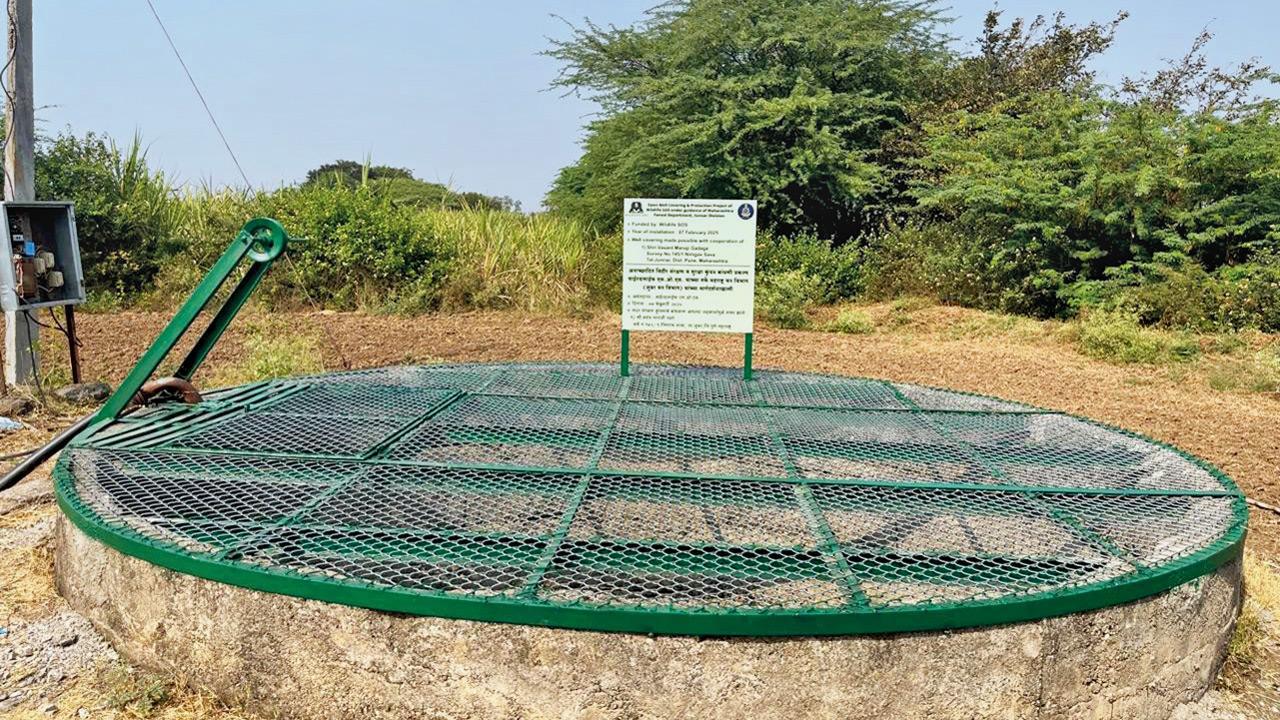The Junnar Forest Division, in collaboration with Wildlife SOS, has secured 25 wells so far and plans to cover 100 more as funding permits; if we compare the data for 2023 and 2024, there has been an estimated decrease in the incidents by 70 per cent

One of the wells covered in Junnar’s Nimgaon Sawa area
The Maharashtra Forest Department, along with the Wildlife SOS NGO, has started installing metal grills and covers on wells to address past incidents of leopards and other wild animals falling into open wells near sugarcane fields in Junnar, close to Pune. They report that these efforts have contributed to a decline in such occurrences.
Assistant Conservator of Forest (ACF) Smita Rajhans from Junnar Forest Division said, "Till now around 25 open wells in four talukas that come under Junnar division have been covered and it has shown positive results as it has reduced the number of incidents where leopards or other wild animals were falling into the open wells. We have provided a list of 100 open wells in our jurisdiction, which Wildlife SOS will cover as and when they get funds for the same.”
The official also told mid-day that in the last five years, a total of 184 leopards that had fallen into the open wells had been rescued from Khed, Ambegaon, Junnar and Shirur talukas that come under the jurisdiction of Junnar Forest Division.
If we compare the data for 2023 and 2024, there has been an estimated decrease in the incidents by 70 per cent. A total of 37 leopards were rescued in 2023-2024 and in 2024-2025 – a total of 27 leopards were rescued. Recently NGO Wildlife SOS covered five new wells in Junnar’s Hivare Narayangaon, Warulwadi, Nimgaon Sawa, Pimpari Pendhar and Ane.
As part of the project, the team conducted a field study, speaking with well owners to identify locations where falls frequently occur. The NGO claimed that the observations revealed that leopards fall into wells while hunting. Most of the leopards were found to have fallen while chasing domestic animals such as dogs, cats, goats and cows.
Mahendra Dhore, manager, Manikdoh Leopard Rescue Centre, Wildlife SOS said, “Over the past two years, we have conducted awareness campaigns in high-risk areas, educating local people, including school children. In various schools, we are educating students about wild animals through outreach programmes and advising the residents to not let their pets roam outside at night but to keep them in enclosed spaces.”
The most important information gathered while working on this project is that if farmers keep their domestic animals enclosed at night, the huge number of incidents of leopards falling into wells can be reduced. Kartick Satyanarayan, Co-founder and CEO, Wildlife SOS said, “We are committed to making every effort to ensure that leopards and other wild animals do not fall into wells, and we will continue to work towards this goal with utmost dedication.”
 Subscribe today by clicking the link and stay updated with the latest news!" Click here!
Subscribe today by clicking the link and stay updated with the latest news!" Click here!








